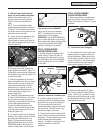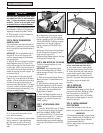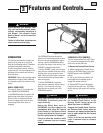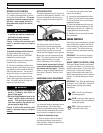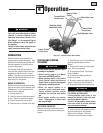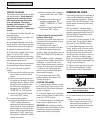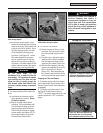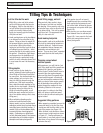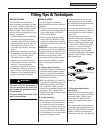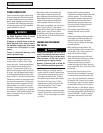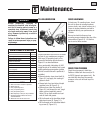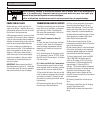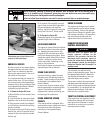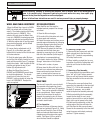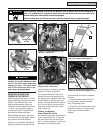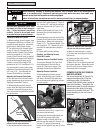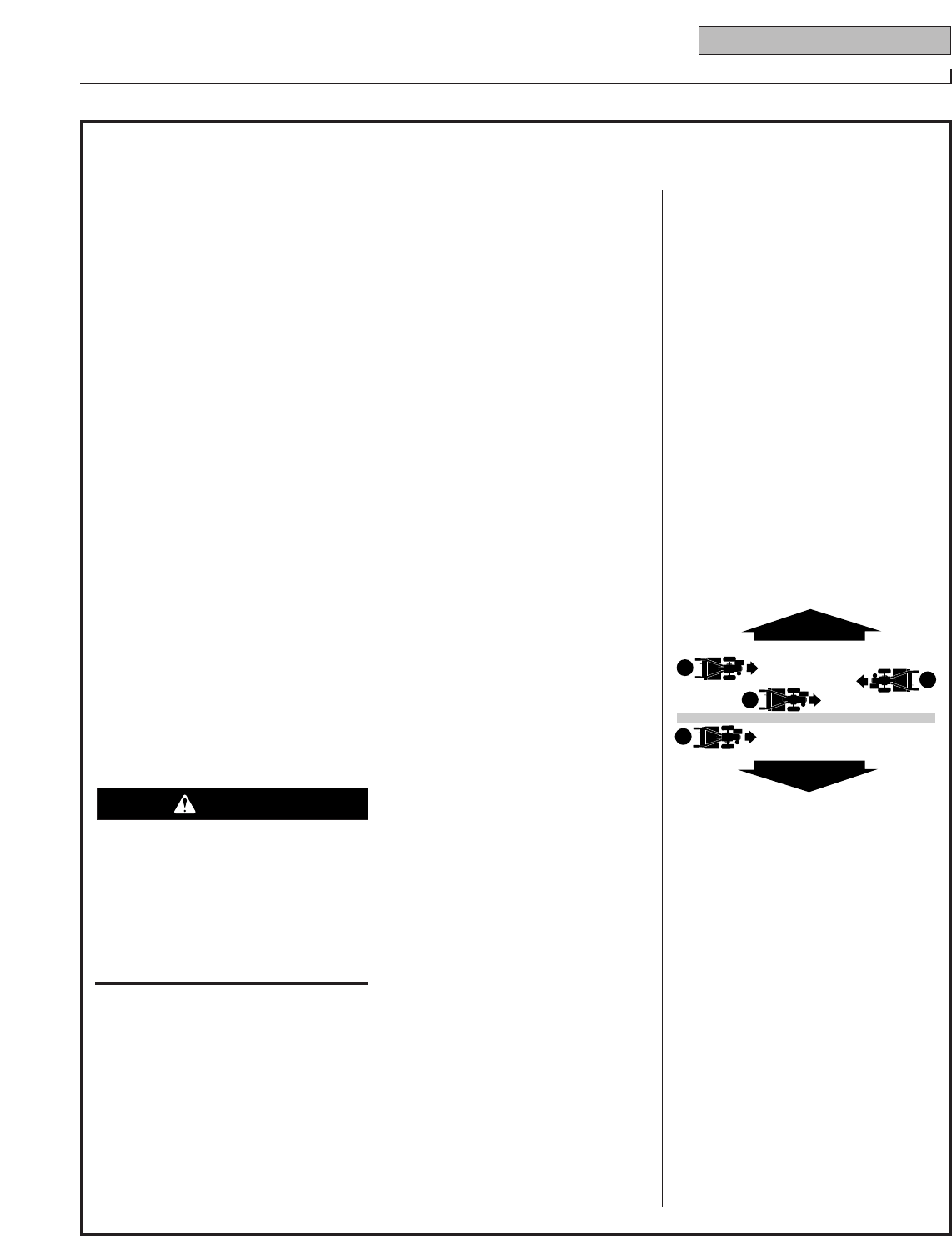
Section 4: Operation 15
Tilling Tips & Techniques
Clearing the tines
The tines have a self-clearing action
which eliminates most tangling of debris
in the tines. However, occasionally dry
grass, stringy stalks or tough vines may
become tangled. Follow these proce-
dures to help avoid tangling and to clean
the tines, if necessary.
• To reduce tangling, set the depth regu-
lator deep enough to get maximum
“chopping” action as the tines chop the
material against the ground. Also, try
to till under crop residues or cover
crops while they are green, moist and
tender.
• While power composting, try swaying
the handlebars from side to side (about
6" to 12"). This “fishtailing” action
often clears the tines of debris.
• If tangling occurs, lift the tines out of
the soil and run the tiller in reverse for
a few feet. This reversing action
should unwind a good deal of debris.
• If reversing the tiller doesn’t clear the
debris, it may be necessary to remove
the debris by hand (a pocket knife will
help you to cut away the material).
Tilling on slopes
If you must garden on a moderate
slope, please follow two very important
guidelines:
1. Till only on moderate slopes, never on
steep ground where footing is difficult
(review safety rules in the “Safety”
Section of this Manual).
2. We recommend tilling up and down
slopes rather than terracing. Tilling
vertically on a slope allows maximum
planting area and also leaves room for
cultivating.
IMPORTANT: When tilling on slopes, be
sure the correct oil level is maintained in
the engine (check every one-half hour of
operation). The incline of the slope will
cause the oil to slant away from its
normal level and this can starve engine
parts of required lubrication. Keep the
engine oil level at the full point at all
times!
A. Tilling up and down slopes:
• To keep soil erosion to a minimum, be
sure to add enough organic matter to
the soil so that it has good moisture-
holding texture and try to avoid leaving
footprints or wheel marks.
• When tilling vertically, try to make the
first pass uphill as the tiller digs more
deeply going uphill than it does down-
hill. In soft soil or weeds, you may
have to lift the handlebars slightly while
going uphill. When going downhill,
overlap the first pass by about one-half
the width of the tiller.
B. Terrace Gardening:
• When a slope is too steep or too short
for vertical tilling, it may be necessary
to till across the slope and create ter-
raced rows. Terraces are rows that are
cut into the side of a slope, creating a
narrow, but flat area on which to plant.
• On a long slope, you can make several
terraces, one below the other.
• Terraces should be only 2-to-3 feet
wide. Digging too far into the side of
the slope will expose poor subsoil that
is unproductive for plants.
• To create a terrace, start at the top of
the slope and work down. Go back and
forth across the first row as shown in
Figure 4-10.
• Each succeeding lower terrace is
started by walking below the terrace
you’re preparing. For added stability of
the tiller, always keep the uphill wheel
in the soft, newly tilled soil. Do not till
the last 12" or more of the downhill
outside edge of each terrace. This
untilled strip helps prevents the ter-
races from breaking apart and washing
downhill. It also provides a walking
path between rows.
C. Tilling across slopes without
using terraces:
• If vertical or terracing gardening aren’t
practical for you, then you can till later-
ally across a slope. We don’t really
recommend this method as it can
create unsure footing and invites soil
erosion.
• As in terrace gardening, start at the top
of the slope and overlap the first pass
by half the width of the tiller. For added
stability of the tiller, always keep the
uphill wheel in the soft, newly tilled soil.
1
2
3
12" UNTILLED
1
REPEAT
DOWNHILL
UPHILL
Figure 4-10
Before clearing the tines by hand, stop
the engine, allow all moving parts to
stop and disconnect the spark plug
wire. Remove the ignition key on elec-
tric start models.
Failure to follow this warning could
result in personal injury.
WARNING



